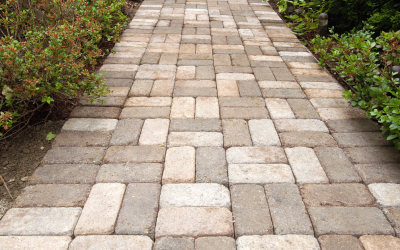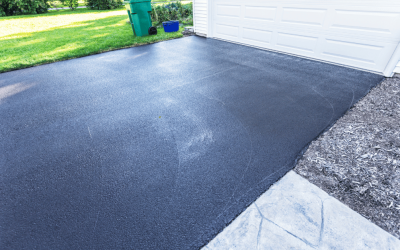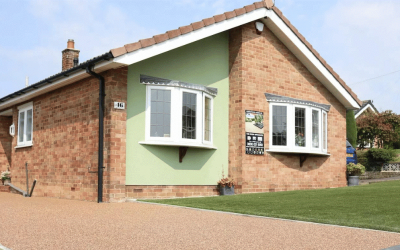The very first element that visitors or potential purchasers will see as soon as they arrive at your home is your driveway. If you need to improve your landscaping or enhance your selling price, then having a well-maintained driveway will do so.
If you wish to have a new driveway or maybe you have an existing driveway intended to be upgraded, then you should go through this blog, which will assist you in determining the perfect driveway for your area.
What Type Of Driveway Are You Trying To Achieve?
Planning a new driveway needs to find the sweet spot between form and function and between durability and cost. Gravel, Permeable concrete, and asphalt are some of the common materials used for the construction of a driveway, but the list of materials can go on and on, with nearly infinite variation in style, color, and shape. Working through your planning is a necessity to get your desired outcome; for some, a neater and tidier appearance might be more appealing than a rougher, tougher driveway.
What is Your Budget?
How much your budget is for your driveway has a whole lot to do with the decision about what kind of driveway to build. Concrete, brick pavers, or asphalt are good choices if you want to keep the cost lower while still looking fabulous. Stamping, staining, or rubberizing of the materials can be done to give them more life in their look.
Have You Considered the local weather?
Lots of attention has to be paid to the selection of a material that can withstand the weathering in the given location. As the climatic conditions are different in different places, they have their effects on them. Some of the most suitable driveway materials for use in various climates are as follows:
Arid and Hot Environments
Materials with high reflection of heat and high thermal aptitude are favored in hot and arid areas. Mainly due to the differences in the diameter of the materials and the reflection of heat, concrete and asphalt are used quite often. Pavers and interlocking stones are also suitable because they distribute heat in a better way.
Freezing Cold Environments
Driveway materials can be cracked and broken from freeze-thaw cycles where it is cold enough to have such action. Ideally, materials would be flexible and resistant to freeze-thaw. Both asphalt and concrete are good choices when laid and maintained properly. Concrete pavers have some extra benefits in that they are less subject to cracking and more flexible than solid concrete.
Snowy Environments
Driveways in snowy areas are best if they are made of materials that can withstand snow plowing and heavy snowfall. Although covered with asphalt or concrete, these areas become potentially dangerous because of their slippery surface when it snows or ices. It is not advisable for people to choose gravel driveways and interlocking pavers because snowplows can easily push the material around.
Wet Environments
Driveway materials that can withstand water fare well in areas that typically experience a lot of rain. Because of their ability to withstand water and overall resilience, asphalt and concrete do quite well. Gravel or paver driveways are great, as water can drain straight through the surface in this scenario.
Best Material For Driveway
If you’re trying to decide between some of the best driveway materials out there, these are the most important:
Gravel
For shorter driveways or those working within a tighter budget, gravel is probably your best bet. It also compacts much better than regular rocks to make for a much more solid surface that sheds water consistently, which is an added benefit.
Blocks
Concrete has been unrivaled in both strength and versatility. The material is then made of mixtures of stone, water, and a lime binder. It provides a smooth, dependable, and solid foundation; it also fares well in all weather conditions with minimal upkeep.
Asphalt
Asphalt is so versatile because it consists essentially of sand, rock, and cement. Well-laid asphalt driveways have aesthetics and utility very similar to concrete, but they are much less expensive. Additionally, it has a low weather breakdown rate and is permeable.
Paving
This stone paving driveway would be an excellent idea to improve appeal, as it gives out a good look, endures for years, and is well laid. Pavers made of either solid basalt or granite do not pool water and never need maintenance.
Conclusion
A better driveway delivers both aesthetic and functional benefits, multiplying its effect on the resale value of your home. Before building or making any changes to an existing driveway, it is best to first engage in research, get involved with an expert, and get some specific quotes to ensure your selected driveway design meets your current and future budgetary needs, in addition to any other needs you may have. You may contact Virtus Concrete to learn about the best way to create a driveway.









0 Comments